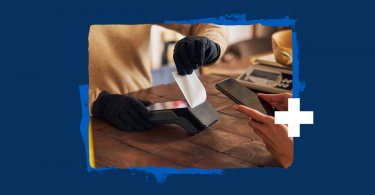With over 431 million active accounts worldwide, PayPal has become one of the most widely used online payment methods. Whether you’re an individual buying goods online or a business accepting customer payments, PayPal can make transacting fast, easy, and secure.
PayPal primarily offers two account options: Personal accounts and Business accounts. At first glance, the differences may seem minor, but understanding the nuances between these account types and choosing the right one for your needs is critical.
In this blog, you’ll learn everything you need to know to make the best decision for your situation. We’ll explore the pros and cons of each account type, their intended uses, features, and more.
Key takeaways: 1. PayPal Personal accounts are suited for online shopping and casual selling. 2. PayPal Business accounts provide advanced features like multi-user access, professional invoicing, and more. 3. Switching from a Personal to a Business account is a straightforward process. 4. Birdeye makes it easy for businesses to streamline payment processes.
Table of contents
- What is a PayPal Personal account?
- How to set up a PayPal Personal account
- Pros of PayPal Personal accounts
- Disadvantages of PayPal Personal accounts
- What is a PayPal Business account?
- How to set up a PayPal business account
- Pros of PayPal business accounts
- Disadvantages of PayPal Business accounts
- Paypal Personal vs. Business accounts
- Switching your PayPal account from Personal to Business
- Which PayPal account type should you choose?
- Paypal Business Account vs. Personal FAQs:
- Get paid faster with Birdeye
What is a PayPal Personal account?
A PayPal Personal account allows individual consumers to make online purchases, send or receive money, and occasionally sell personal items or services in small volumes.
A Personal account allows for:
- Seamless online shopping: Shop from the millions of merchants and service providers that accept PayPal without needing to enter credit card details every time.
- Convenient money transfers: Send or receive money from other PayPal users with a Personal account — transferring funds to friends or splitting bills is a breeze.
- Quick one-time transactions: Accept one-off payments when selling old items on Facebook Marketplace or when your kid sets up a lemonade stand.
- Flexible payments for side projects: Receive occasional payments for side jobs or freelance projects.
How to set up a PayPal Personal account
Signing up for a PayPal Personal account is easy — you can register directly on PayPal’s website or mobile app in mere minutes.
The following information is required to open a Personal account:
- Name
- Home address
- Phone number
- Email address
You’ll also need to link either a bank account or a debit/credit card to your PayPal account.
Does it cost money to open a PayPal Personal account?
There are no costs to open a Personal account. Transaction fees are applied only when actively receiving money for commercial purposes. For personal usage, fees are minimal.
Pros of PayPal Personal accounts
Here are some of the upsides to using a Personal account for individuals:
- No monthly fees or account setup costs
- Convenient way to pay for goods and services online
- Quick, easy, and secure way to send money and make personal transactions
- Buyer protection for eligible online purchases
Complete Payment Solution for Local Businesses
Want to see the impact of Birdeye on your business? Watch the Free Demo Now.
Disadvantages of PayPal Personal accounts
Some PayPal Personal account limits and disadvantages to be aware of include:
- Potential transaction fees for sales of goods and services
- Limitations around international payments in some cases
- It may be difficult to separate business and individual transactions for tax purposes
You should also be aware that a PayPal personal account limits the amount of money you can send in a single transaction — so if you plan to transfer large amounts of money, this may not be the right account type for you.
In summary, a PayPal Personal account offers a streamlined way to shop and pay online safely.
What is a PayPal Business account?
Frequent and high-volume sellers need an account that is optimized for merchant services. A PayPal Business account provides advanced features so businesses can collect payments from customers, create professional invoices, sell products online, and more. Some notable highlights include:
- Accept various forms of payment: Accept payments from PayPal, major credit/debit cards, Venmo, and more. Customers can even pay in person by scanning a QR code on the seller’s device.
- Send branded invoices: Craft and send polished invoices, track payments effortlessly, and integrate the payment system directly into sales funnels or software using PayPal’s API.
- Expand eCommerce capabilities: Sell across multiple online platforms and locations, access insightful sales reports, and utilize advanced inventory, shipping, and discount management features.
How to set up a PayPal business account
To open a business account, you’ll need to provide PayPal with information about your business, including:
- Business name
- Tax ID
- Industry and primary business type
- Customer service phone number
- Website URL
- Average monthly sales volume
You can sign up for a PayPal Business account on PayPal’s website — it only takes a few minutes. However, the business account approval process can take a few days as PayPal verifies your company’s legitimacy.
Does it cost money to open a PayPal Business account?
No, it does not cost money to open a PayPal Business account. The setup is free, but transaction fees apply when you start accepting payments.
Pros of PayPal business accounts
Some benefits that come with a Business account include:
- Accept debit and credit card payments directly using PayPal or a card reader
- Seamlessly accept Venmo payments
- Create and customize professional invoices
- Support recurring billing and subscriptions
- Robust transaction reporting and reconciliation
- QR code payment capability for in-person sales
- Access to exclusive PayPal business financing offers
- Dedicated business customer support line
Disadvantages of PayPal Business accounts
Some potential cons of PayPal business accounts include:
- More complex fee structure
- Minimum account balances may be required
- Chargeback risk for goods/services transactions
To summarize, a Business account unlocks the commerce features and customization needed for operating a company selling goods or services. Be aware, though, that these expanded capabilities come with slightly higher fees and requirements than a Personal account.
Paypal Personal vs. Business accounts
While Personal and Business accounts share some baseline functionality, there are critical differences between these account types regarding features, fees, and intended use cases.
A Personal account is suited for online shopping, sending or receiving personal payments, or managing casual selling activities. A Business account is tailored for business operations and provides multi-user access, a customer service email alias, and the capability to serve as a merchant account for online payments.
Switching your PayPal account from Personal to Business
As your selling activities grow into steady side income or a full-fledged business, you may need to upgrade from a Personal to a Business account. Consider switching if you:
- Regularly sell goods or services to multiple customers
- Want to add customized invoicing to your workflow
- Need to integrate PayPal with a CRM or other sales software
- Require advanced inventory management capabilities
Luckily, upgrading your account is straightforward. Simply:
- Visit Settings > Account Type
- Select Convert to Business Account
Then, follow the step-by-step prompts and provide the required business information. In most cases, PayPal will confirm your account type change within 1-2 business days.
With a Business account added to your selling toolbox, you can scale your orders, invoice professionally, maximize integrations, and unlock new revenue opportunities.
Which PayPal account type should you choose?
Now that you understand the critical differences between Personal and Business accounts, it’s time to decide which account type is right for you. Here are some guiding questions to ask yourself:
Are you primarily looking to shop online and occasionally sell used items? If so, a Personal account will likely meet your needs. The streamlined features make online purchases and peer-to-peer payments simple.
Are you operating a business selling products or services to multiple customers? If your sales volumes are steadily growing, utilizing a Business account unlocks robust eCommerce, invoicing, inventory management, and reconciliation capabilities tailored for operating a company. The expanded feature set justifies the slightly higher transaction fees.
And remember: This choice doesn’t need to be permanent. As your needs evolve, you can easily convert between account types within your PayPal account settings.
Paypal Business Account vs. Personal FAQs:
PayPal is a trusted provider overseen by multiple global regulatory bodies, ensuring a secure transaction environment. However, like with any online platform, there’s always a risk of scams. It’s important to closely manage any visible information on your account to maintain privacy where necessary.
PayPal Personal accounts are ideal for online shopping or sending/receiving personal payments for shared expenses. PayPal Business accounts are for business operations. Business accounts allow multiple user access, provide a customer service email alias, and can also function as your merchant account for receiving online payments or donations.
While PayPal Personal accounts can technically be used for small-scale selling or freelancing, it’s recommended to use a PayPal Business account for more extensive business operations. Business accounts offer additional features beneficial for businesses, such as multi-user access and better management of transactions.
PayPal is not exclusively for business; it offers solutions for both individuals and businesses. Individuals can use PayPal for personal payments, online shopping, and casual selling. Businesses can leverage PayPal’s suite of payment processing tools to manage and grow their operations.
A: You can upgrade from a Personal account to a Business in your PayPal account settings. Simply go to your settings, select Account Type, then select Convert to Business Account.
Get paid faster with Birdeye
There are dozens of payment processing solutions on the market — you need one that was built for businesses like yours. That’s where we come in. With Birdeye Payments, you can:
- Offer customers a seamless omnichannel payment experience
- Unlock consistent cash flow with automated processing
- Get paid faster by accepting a wide range of payment methods
Whether you operate in-person, online, or on the go, Birdeye helps you create a seamless payment process so you can focus on doing what you do best — serving your customers.

Originally published









